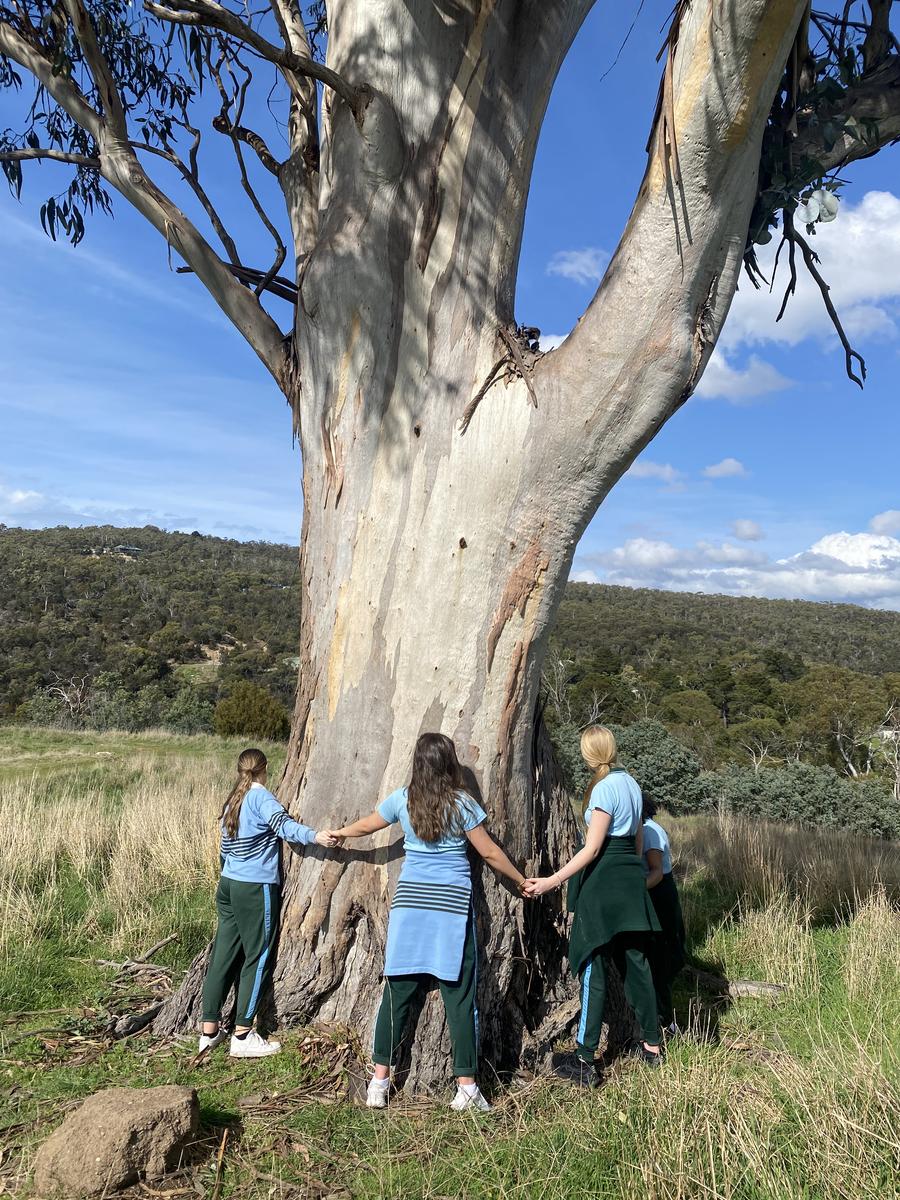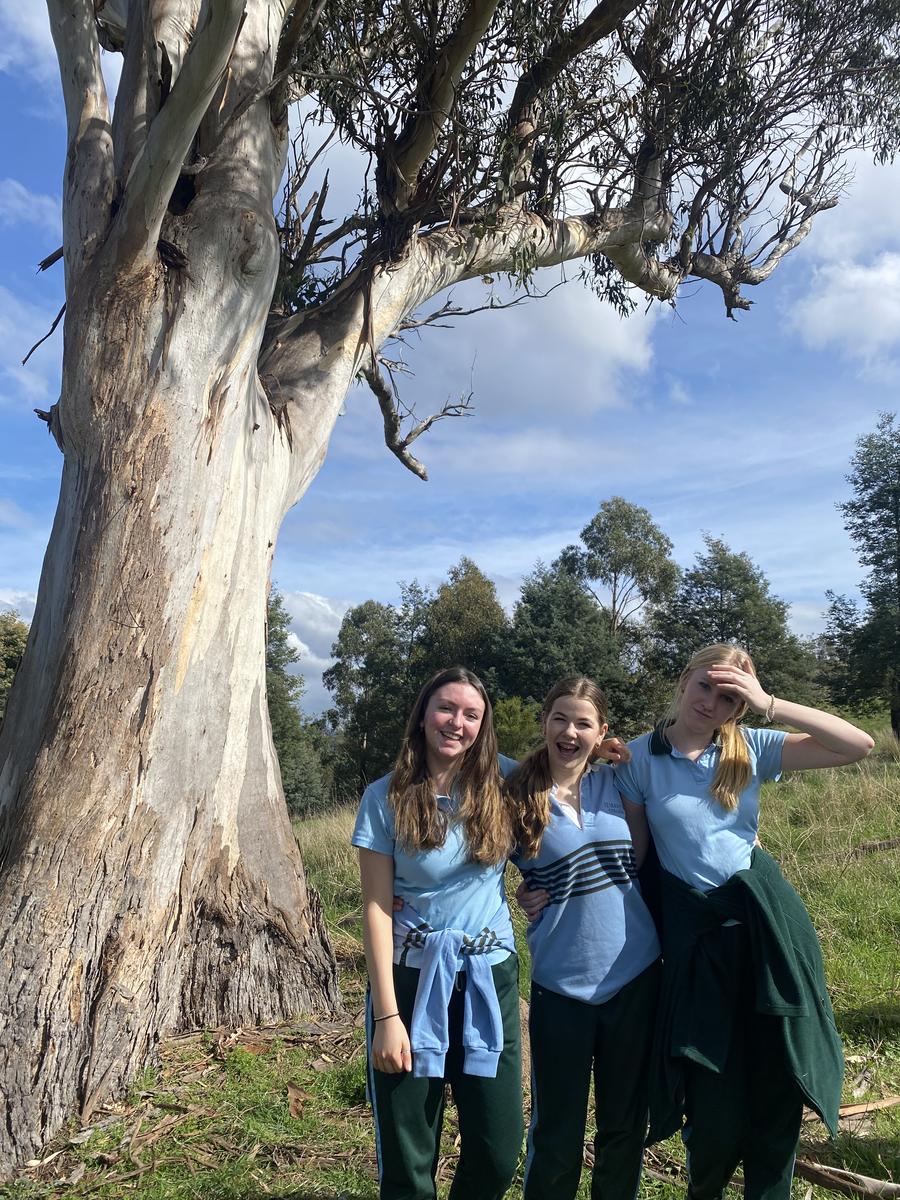Latest news
Year 9s on country

Latest news
Year 9s on country
On Friday 2 September, the Year 9 cohort went on a life-changing cultural excursion to piyura kitina (Risdon Cove) to learn about the incredible stories and teachings from the palawa community, as well as developing a deeper, more compassionate understanding of the heart-wrenching massacre of the traditional custodians of the land that took place in 1804.
Personally, this on country excursion was by far the best HaSS excursion I have ever had the privilege to take part in. It was filled with everything that a brilliant excursion needed—a
deep sense of connection to the land we were walking on, educated and engaging tour guides of Aboriginal background who gave us detailed recounts of the events that occurred at pitura kitina, new ways of thinking, and forcing us—as a College community—to consider the damage to this land that is so often overlooked and undervalued (as well as the delicious bush tucker, brilliant weather and smiles all round!).
My HaSS class, 9B, was fortunate to have Dewayne as our tour guide. A proud palawa man, Dewayne provided us with in-depth recounts of what was experienced by his ancestors all those years ago, upon the invasion of piyura kitina. As well as making us aware of the horrific tragedies, Dewayne also shed light on the incredible resilience of palawa people on this land, who—upon being forced to rebuild their community, culture and connections due to destruction caused by British invaders—were able to rekindle the flame of their beautiful culture that has been keeping the Australian earth, sky, and sea protected and cared for, for millennia.
Whilst the events that occurred here were indeed tragic, and left many scars for Aboriginal people, it is because of this tragedy, and the resilience of the Aboriginal community, that we today—as a school—can learn about the eternal culture of the land we are so blessed to walk upon. Knowing that this land is being cared for in a multitude of ways makes us feel as though there is far more hope for our country, as it positively affected by diversity and care.
On our excursion, we were also privileged to learn the complex mechanisms that palawa people living on country have developed to live in harmony with the land. From herbal remedies to prevent sickness to being able to identify types of grasses that would help with dehydration, the Aboriginal people were a thriving community that relied solely on natural materials sourced directly from the earth, and were able to grow healthy and strong children that would then go on to follow in their community’s footsteps and care for the land for all the resources it had provided them. This kind of care for the land is what, I think, our Australian Western culture can adopt, and by realising that our earth contains everything we need, as a human race to survive and flourish, we would be far less reliant on unhealthy, unsustainable, and unattainable ways of living.
One major aspect of this excursion that we found particularly enriching was learning about the history of the land we walk on every day, that we have all been guilty of taking advantage of. Walking on the bushland track, accompanied by the gentle breeze and the musical chirping of the birds, made me really stop and reflect on my own life; how lucky I am to live in an area that is safe from violence, invasion, discrimination and racial hatred. I thought to myself, "Wow, Maggie. There is so much in our life we have to be grateful for".
When I think about the atrocities of what the palawa community of Tasmania have experienced, and how, despite the denial of their culture, language, and people for centuries, they have never stopped loving and caring for the land they live on. That is something that we, as the younger generation, as well as a race, have learnt to disregard. But appreciating the seemingly ‘small’ things in our lives, we can fully understand what it means to live and be a part of such a world.
To conclude, I highly recommend that this excursion be continued for all Year 9 classes across the following years. It truly is a life-changing experience that my classmates and I are so lucky to have had. This excursion was such an accurate depiction of a crucial part of history that is often labelled as ‘unknown', and I know that my general knowledge and understanding of Tasmanian Aboriginal history in lutruwita has certainly expanded. Learning about it from the custodians of the land makes it even more special, and I feel more connected to the land because of their teaching. I am so thankful to have been on this excursion.
Thank you to Dewayne, Jye, Nicole, Kitana and all our incredible teachers who made this excursion possible; it truly showed us the meaning of country and community.
Maggie Robinson (Year 9), with input from Nala Cater (Year 9)





